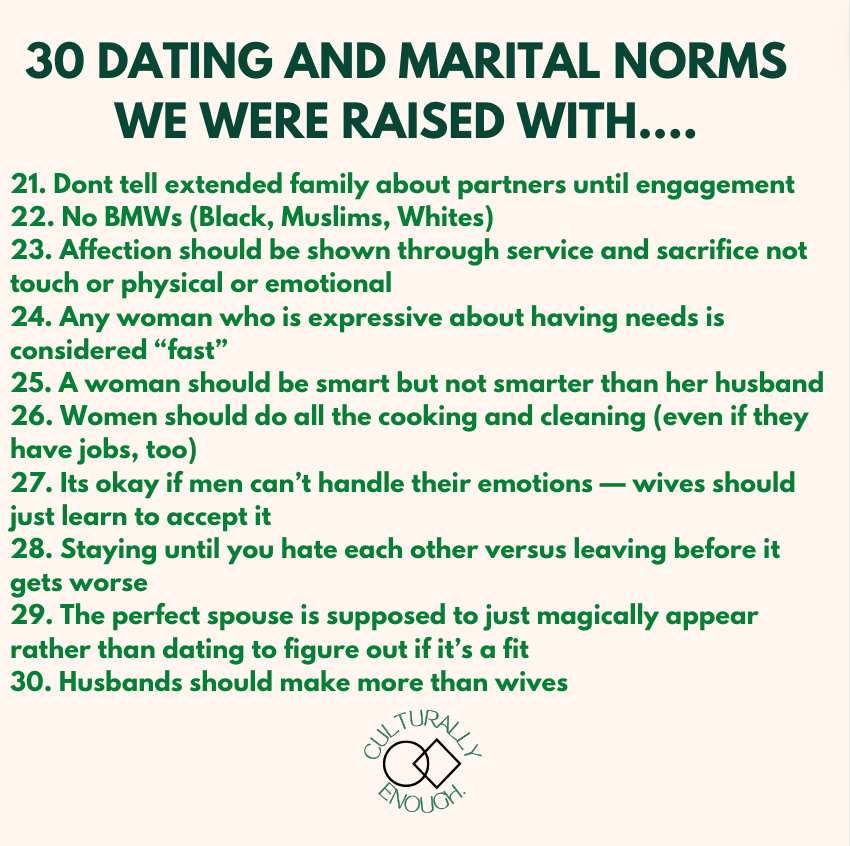Last week, I explored dating and relationships on Instagram. I talked about reasons why love may feel like an elusive and complicated topic/feeling for children of immigrants, and I shared more on a precise experience of dating in secret (and having your first love and heartbreak in secret). I even shared tips for how to handle conflict in your relationships (especially if your parents’ marriage was fraught with it). Finally, I shared crowdsourced red and green relationship flags from the community.
On Sunday, we had such a fruitful community conversation club (paid subscribers get 2x a month!), about dating and marital norms, gender and culture. We talked about the double standards of being a woman in relationships, norms around “being given away” and expectations placed on us from in laws. We also talked about how small the dating pool can feel when you look at the checkboxes our parents have.
I asked the Brown Girl Therapy community to tell me more about what dating and marital norms they were raised with. Here are 30:
Generally, a concept that has come up repeatedly and something I have observed, is a “don’t ask, don’t tell” policy in immigrant families. Whether it’s abuse, infidelity, dating, substance use, sex, infertility, or any other perceived failure or negative behavior, many of us have been raised in households where it’s common to keep it to yourself in order to maintain the optics for others. This may look like children keeping a parent’s secrets from the other parent, or individuals in the family keeping their own secrets from other family members, or generally a family keeping things “in the family” to save face in the community. I know I have kept secrets from my family to protect their reputation, and to protect the reputation I wanted them to uphold of me.
This is such a painful position to be in. It can reinforce beliefs around what we are “supposed” to do even if it feels or is performative. This impacts our self-concept, our ideals around worthiness and relationships, and how we engage in vulnerability with others. If you grew up in a don’t ask, don’t tell household, then you likely struggle with the following…
Become a paid subscriber and keep reading for:
12 struggles of growing up in a “don’t ask, don’t tell” household
4 tips based on my own experience of learning to have a healthier relationship with ‘love’
Keep reading with a 7-day free trial
Subscribe to Culturally Enough. to keep reading this post and get 7 days of free access to the full post archives.






